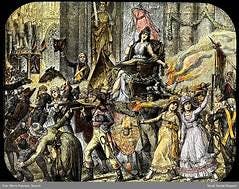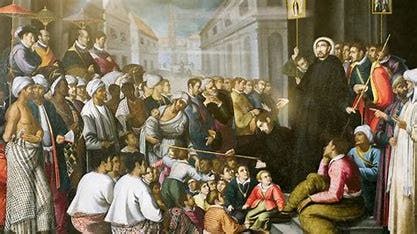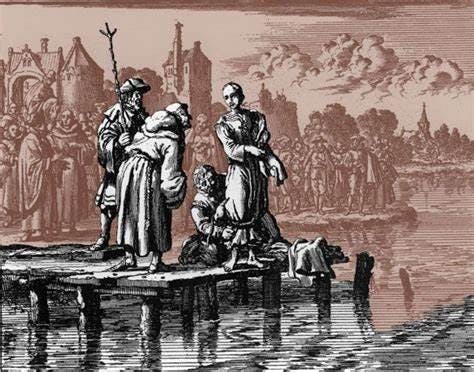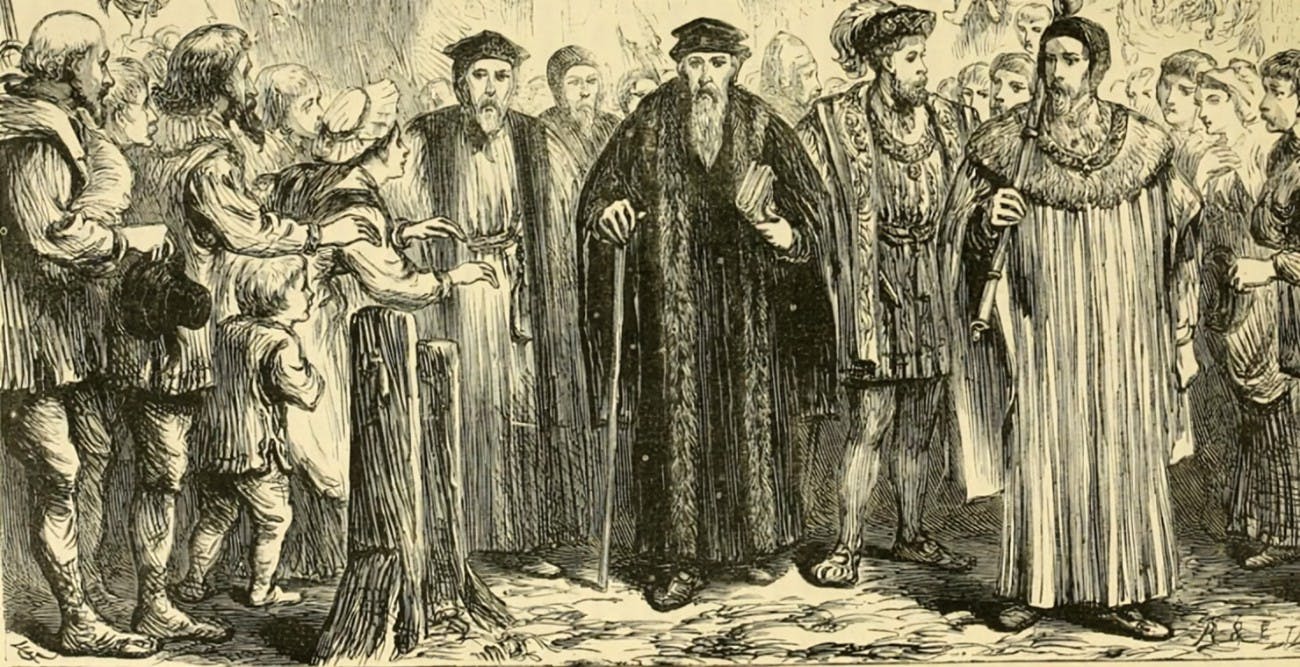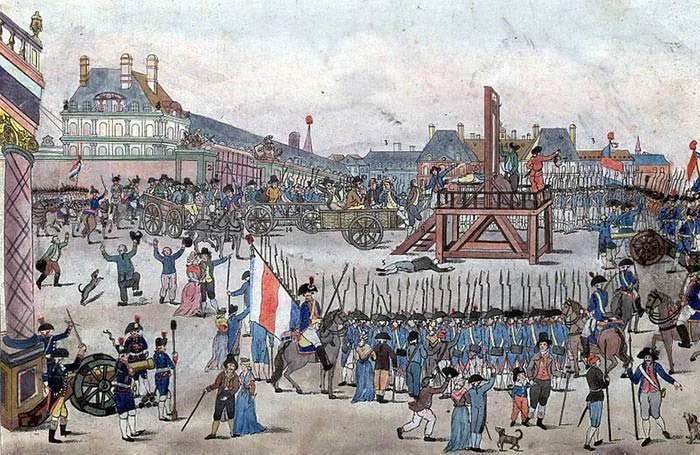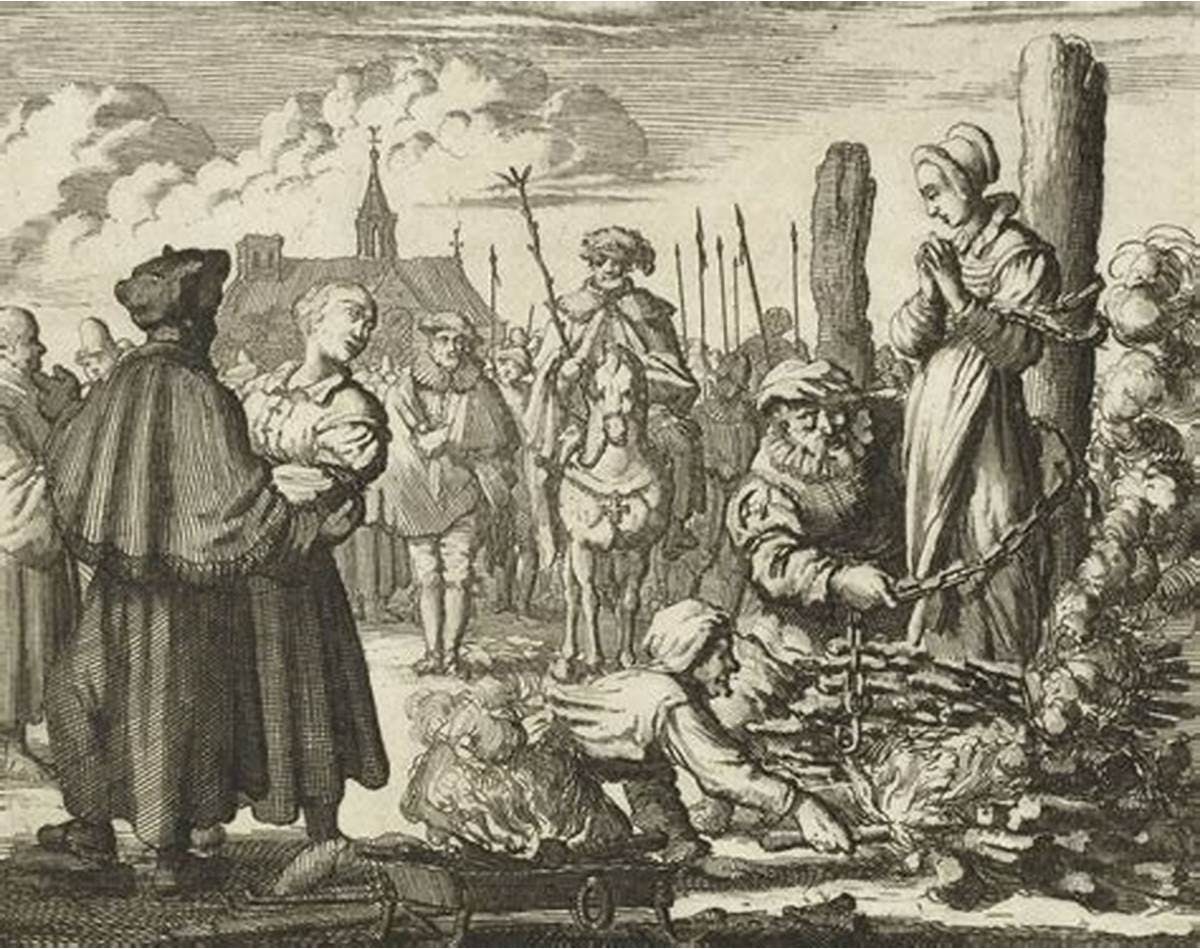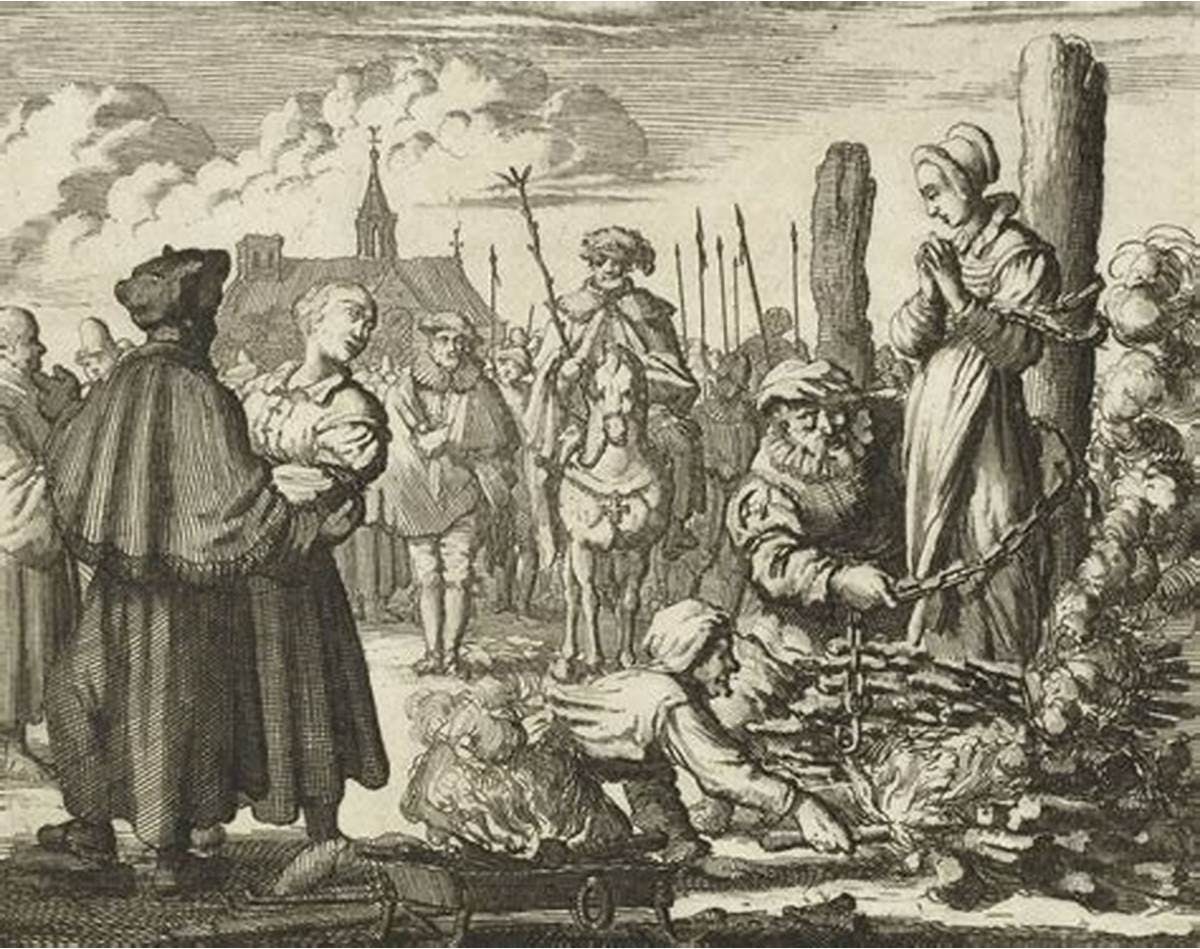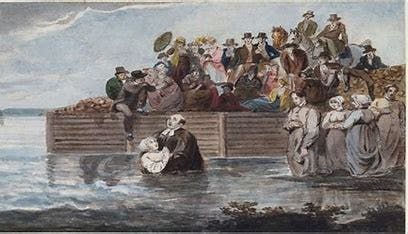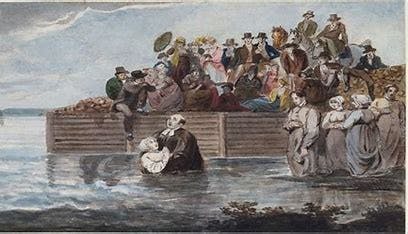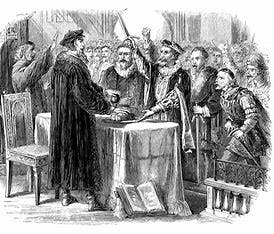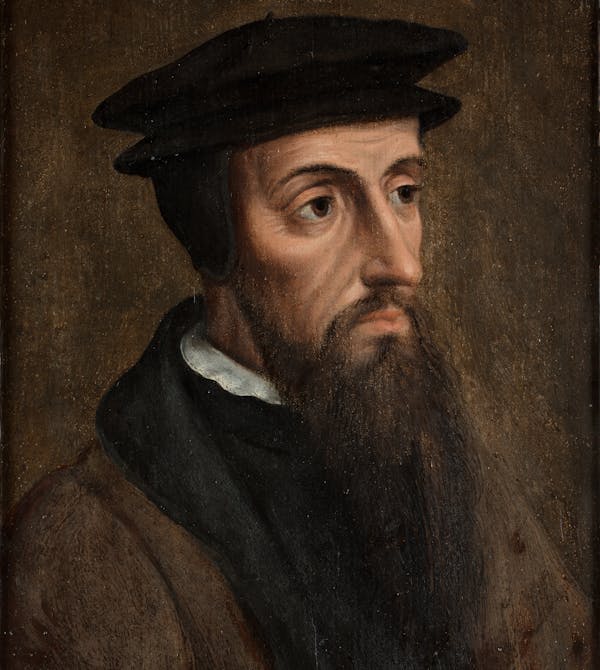
John Calvin
1509 AD–1564 AD
John Calvin was a French theologian, pastor, and prominent leader of the Protestant Reformation in the 16th century. He was born on July 10, 1509, in Noyon, France. Calvin is most famous for his theology, which was the basis of Calvinism, a Protestant Christian denomination.
Calvin was brought up by a religious practicing family, and his father wanted him to study law first. As time went by, however, Calvin developed a greater interest in religion and theology. Around 1533, Calvin experienced a spiritual conversion that led him to leave the Catholic Church and adopt Protestant ideas. At that time, Protestants were treated badly in France, so Calvin escaped to Switzerland, where religious freedom was more accepted. One of Calvin's most significant contributions to Christianity was his publication of the book Institutes of the Christian Religion, first published in 1536. The book outlined the main principles of Protestantism and became one of the most widely read books of the Reformation. The book discussed principles such as being saved by faith alone, the Bible above church traditions, and God being in control of everything.
Calvin was invited in 1536 to come to Geneva, Switzerland, to help reform the local church. Calvin's leadership made Geneva a focal point of the Protestant Reformation. Calvin wanted to establish a society based on stringent moral and religious principles. Calvin helped to provide a new church structure with deacons, elders, pastors, and teachers. Calvin felt the church had to have a real role in daily life and must be in a position to wield Christian discipline. Although a number of individuals did not initially appreciate Calvin's reforms, they ultimately were accepted, and Geneva came to be regarded as an excellent model of a Protestant city. Numerous other religious leaders visited Geneva to learn about Calvin's teachings and transmit them to their homelands.
Calvin focused on the idea that God is in control of everything, even who gets saved. One of his well-known ideas is predestination, that God has already decided who will be saved and who will not. This idea became very important in Calvinism. The other big beliefs were that humans are sinful, that we need God's grace, and that salvation is through faith alone. Calvin died on May 27, 1564, but his influence did not. His ideas helped shape Protestant Christianity and spread to Scotland, the Netherlands, and even the American colonies. Most Reformed and Presbyterian churches today around the globe still follow Calvin's teachings.


